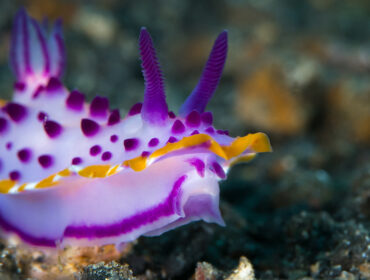The ocean is full of critters that are shy and difficult to find. Hidden between the nooks and crannies and nestled down on the ocean floor is a menagerie of marine life. Among these retreating animals is the blanket octopus. The common blanket octopus is a rare site indeed and blanket octopus facts are few and far between. Making their home in the deep ocean means that their contact with humans is uncommon. Characterized by a large membrane that span between arms, very little is actually known about these elusive creatures. The membrane is actually a defensive mechanism, and functions much like the webbing on the feet of a frog. Though little is known, here are a few blanket octopus facts of which we are sure.
Large Females
Most species experience what is known as sexual dimorphism. This simply means that one sex is large than the other. In blanket octopi, however, the difference is astonishing. Females can grow to over 6.5 feet in length. Their male counterparts are only about an inch long when they are fully matured. Male blanket octopi are so small that their existence was all but myth until fishermen began pulling them up in their nets.
Unusual Mating
With the males and females differing in size by a wide margin, one might imagine that mating could present a few problems. Fortunately, male blanket octopi have developed a solution. The male blanket octopus stores his sperm in a detachable arm. They detach their arm into the female and die shortly after mating.
Blanket Defense
The “blankets” of a blanket octopus are not for warmth or to aid in mobility. The blanket octopus actually uses them for defense. When fleeing from a potential threat, the octopus unfurls it’s blankets to appear larger. If that trick doesn’t work, the octopus can then detach the blankets so the pursuing threat will become entangled.
A Good Offense
In the event that the blanket defense tactics don’t pan out, the blanket octopus has another trick up it’s sleeve. The blanket octopus is immune to the toxins found in the extremely poisonous Portuguese Man O’War jellyfish. As such, the octopus is known for ripping off a Man O’War tentacle and using it as a weapon.
No Ink
Unlike other species of octopus, the blanket octopus does not eject ink to defend itself. This fact is not surprising when one considers the myriad of other defense techniques the blanket octopus is armed with.
Photos via Google Images, Wikipedia






